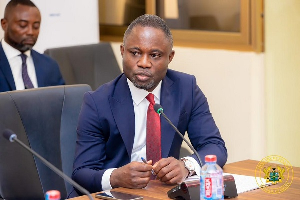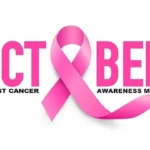

On October 12, 2025, Ghana’s Minister for Health, Kwabena Mintah Akandoh, made headlines when he intervened in a disciplinary matter involving a staff nurse, Bernice Aboagye, who had been queried by the Ghana Health Service (GHS) for allegedly making offensive remarks about him on social media. The case, which quickly circulated online after the query letter was leaked, sparked debate about professional conduct, freedom of expression, and the balance between discipline and tolerance in Ghana’s health sector.
In a statement issued by the Ministry of Health and signed by Tony Goodman, Head of Health Training Institutions and spokesperson for the Ministry, Akandoh acknowledged the importance of maintaining professional standards and the Code of Conduct that governs health workers. The Ministry commended the GHS for acting to uphold these standards. However, Akandoh urged the Service to temper justice with mercy, stressing that the health sector must remain a space where constructive criticism and divergent views are welcomed. “Both the Minister and the government welcome divergent views and constructive criticism as part of the commitment to fostering tolerance and openness to diverse opinions,” the statement read.
This intervention by the Minister reflects a nuanced approach to leadership in a sector often marked by tension between workers and administrators. By calling for leniency, Akandoh signaled that while discipline is necessary to maintain professionalism, it should not come at the expense of open dialogue. He encouraged health workers to express their concerns responsibly and respectfully, noting that healthy dialogue contributes to the development of the sector. His appeal suggests that criticism, when expressed constructively, can serve as a catalyst for reform rather than a threat to authority.
The Ministry also clarified its stance on demonstrations and public expressions of frustration by health workers. It stated that it does not oppose demonstrations, describing them as legitimate and constitutional rights. At the same time, it cautioned against the use of abusive language or indiscipline during such actions. This dual message reflects the government’s attempt to balance respect for civil liberties with the need to maintain order and professionalism within the health service.
The case of Nurse Aboagye has raised broader questions about the role of social media in professional life. The Ministry reminded health professionals to exercise circumspection in their public communications and online engagements. In an era where digital platforms amplify voices but also expose individuals to scrutiny, the incident highlights the challenges of navigating personal expression and professional responsibility. For health workers, whose roles are deeply tied to public trust, the stakes are particularly high.
Akandoh’s intervention can also be seen as part of a broader effort to foster reconciliation and dialogue within the health sector. In recent years, Ghana’s health system has faced recurring tensions between government authorities and health workers over issues such as salary arrears, working conditions, and resource constraints. By appealing for mercy in this case, the Minister may be seeking to build goodwill and demonstrate a willingness to listen, even in situations where criticism has been directed at him personally.
The public reaction to the case has been mixed. Some commentators have praised Akandoh for showing magnanimity and tolerance, arguing that his response sets a positive example for leadership in a democratic society. Others, however, have expressed concern that leniency could weaken professional standards if not carefully managed. The debate reflects the delicate balance between protecting freedom of expression and maintaining the integrity of professional codes of conduct.
The incident also highlights the importance of conflict resolution and communication training within the health sector. As the Ministry’s statement suggested, constructive criticism and respectful dialogue are essential for progress. Investing in workshops and training that equip health workers with the skills to voice concerns effectively could help prevent similar incidents in the future. Such initiatives would not only reduce conflict but also strengthen the culture of collaboration and mutual respect within the sector.
Ultimately, the case of Nurse Aboagye and Minister Akandoh’s intervention illustrates the evolving dynamics of leadership, accountability, and communication in Ghana’s health system. It shows that while discipline and professionalism remain vital, they must be balanced with tolerance, openness, and respect for constitutional rights. By calling for leniency, Akandoh has positioned himself as a leader willing to accept criticism and to prioritise dialogue over punishment.
As Ghana continues to grapple with challenges in its health sector, from resource shortages to workforce morale, the lessons from this case may prove valuable. Creating an environment where health workers feel heard, respected, and fairly treated is essential for building a resilient and effective system. At the same time, ensuring that professional standards are upheld will remain critical to maintaining public trust. The balance between these two imperatives will shape the future of healthcare governance in the country.
Source: Citi Newsroom – Akandoh intervenes, seeks mercy for nurse accused of insulting him


